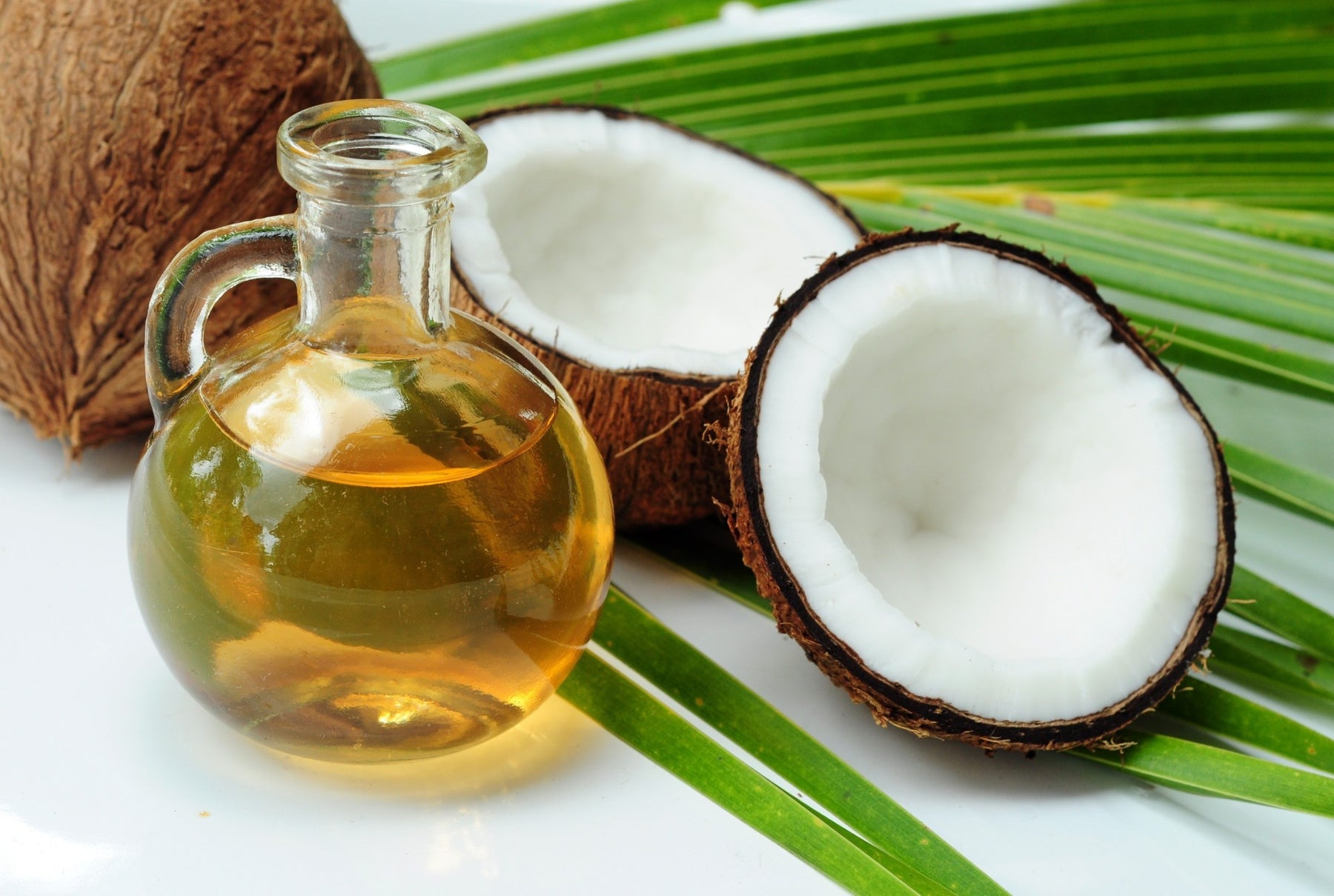
Coconut Oil Has Never Been Healthy?
Widely available in grocery stores, coconut oil has a wide array of health benefits. Notice I said health, not healthy.
The American Heart Association released a report that advised against the use of coconut oil.
Related - MCT: A Complete Guide to Medium Chain Triglycerides
Wait, what?
If you were to Google "coconut oil," you'll find thousands of articles and content touting the health benefits of eating coconut oil.
Marie-Pierre St-Onge, associate professor of nutritional medicine at Columbia University Medical Center spurred the popularity in the weight loss industry. Her research on medium-chain triglycerides (which coconut oil has a high proportion) showed that eating medium-chain triglycerides may increase the rate of metabolism more than eating long-chain triglycerides.
The American Heart Association's report mentions that "because coconut oil increases LDL cholesterol, a cause of CVD (cardiovascular disease), and has no offsetting favorable effects, we advise against the use of coconut oil."
Frank Sacks was the lead author on this report and he's been noted saying "I have no idea why people think coconut oil is healthy. It's almost 100% fat."
St-Onge's report can be found here. With the title of "Medium Chain Triglyceride Oil Consumption as Part of a Weight Loss Diet Does Not Lead to an Adverse Metabolic Profile When Compared to Olive Oil," it sounds like coconut oil is alright to consume.
After clarifying, Marie-Pierre used a "designer oil" that contains 100% MCTs. Traditional coconut oil only contains about 13-15% MCTs. Here is where things get poorly extrapolated.
Jump to the conclusion of the test and you see that results suggest MCT oil can be incorporated into a weight loss program without adversely affecting metabolic risk factors.
Most will stop there, or not even take the time to read this study and go by what others say. "Distinction should be made regarding chain length when it comes to discussing the effects of saturated fats on metabolic risk factors."
The AHA recommends eating less than 6% of saturated fat as part of your daily calories for those who need to lower their cholesterol.
What About Saturated Fats?
Before you get your panties in a bunch about saturated fats; that is a loaded term. People who cut saturated fats from their diets might not even lower their risk of heart disease according to a 2015 BMJ review.
The reasoning behind this is because many will fill that void with sugar, white flour, and other empty calories. Fat is important in absorbing nutrients from other foods, and it helps control your hormones.
All oils are a mixture of saturated, monounsaturated, and polyunsaturated fats. The artery-clogging fat that is the most damaging is saturated fat. Coconut oil is made of 92% saturated fat.
Coconut oil has been found to be bad for your LDL (bad) cholesterol. The saturated fats that make up most of the saturated fat in coconut, palm kernel, and palm oils all raise LDL cholesterol considerably.
Only a small percent (10-15%) of coconut oil contains the less harmful saturated fatty acids.
"You can put it on your body, but don't put it in your body," Sacks says.
Coconut Oil Benefits
While seemingly unhealthy to eat, there are some great things about coconut oil.
Coconut Oil Is Great for Your Hair
For centuries, the unique fat composition in coconut oil has made it especially beneficial for certain hair types.
It Moisturizes Your Skin
Just like your hair, coconut oil is great for your skin. Many people use this as a natural moisturizer and the natural antioxidants make it great to combat wrinkles and skin irritation.
Use It Topically to Heal Skin
Coconut oil heals skin faster after injury or infection due to the fat composition. When used consistently on the skin, it can help get rid of cellulite.
Get a Mental Boost
While eating coconut oil may not be the healthiest, the MCTs have been shown to contribute to a boost of cognitive abilities.
Coconut Oil Drawbacks
Coconut oil is great for everything, except for eating.
One tablespoon has 100% of your daily recommended saturated fat intake. It raises your LDL cholesterol and it has a high caloric density.
Without properly measuring how much you consume, it would be very easy to gain weight using this.
You could eat more than twice the amount of healthy foods like fruits, vegetables, and lean meats and have the same calorie count. All of which will provide much more nutrition than coconut oil.
Coconut Oil Isn't Healthy to Eat
You've seen the facts, now you make the decision.
Used as a beauty product, coconut oil has a laundry list of benefits. As a food, however, coconut oil raises your LDL, is nothing but pure fat (with a small amount of MCT) and is so dense in calories that many will unknowingly overeat.
Base your diet off of nutritious, whole foods. There's no replacement for nutritious foods. Coconut oil isn't going to "make you lose belly fat" and it definitely isn't healthy to eat.

Comments
Leave a comment